|
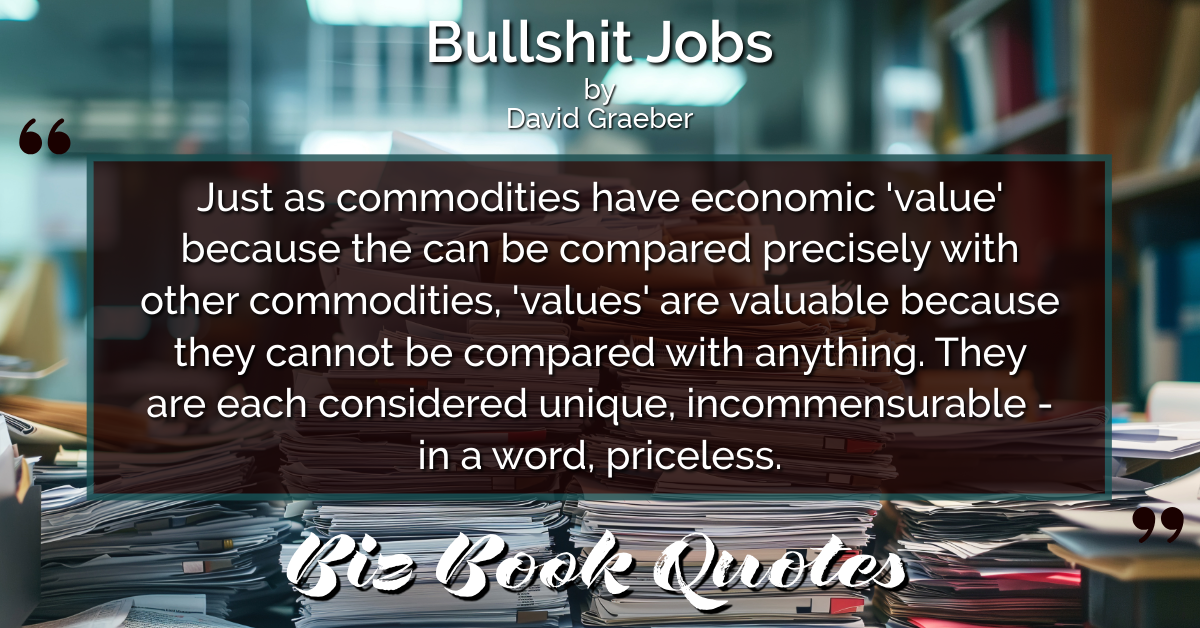
|
Bullshit Jobs:
Just as commodities have economic ‘value’ because the can be compared precisely with other commodities, ‘values’ are valuable because they cannot be compared with anything. They are each considered unique, incommensurable – in a word, priceless.
|
204 |
|

|
Bullshit Jobs:
….the most important things one gets out a job are (1) money to pay the bills, and (2) the opportunity to make a positive contribution to the world.
|
207 |
|

|
Bullshit Jobs:
There seems to be a broad consensus not so much even that work is good but that not working is very bad; that anyone who is not slaving away harder than he’d like at something he doesn’t especially enjoy is a bad person…
|
215 |
|
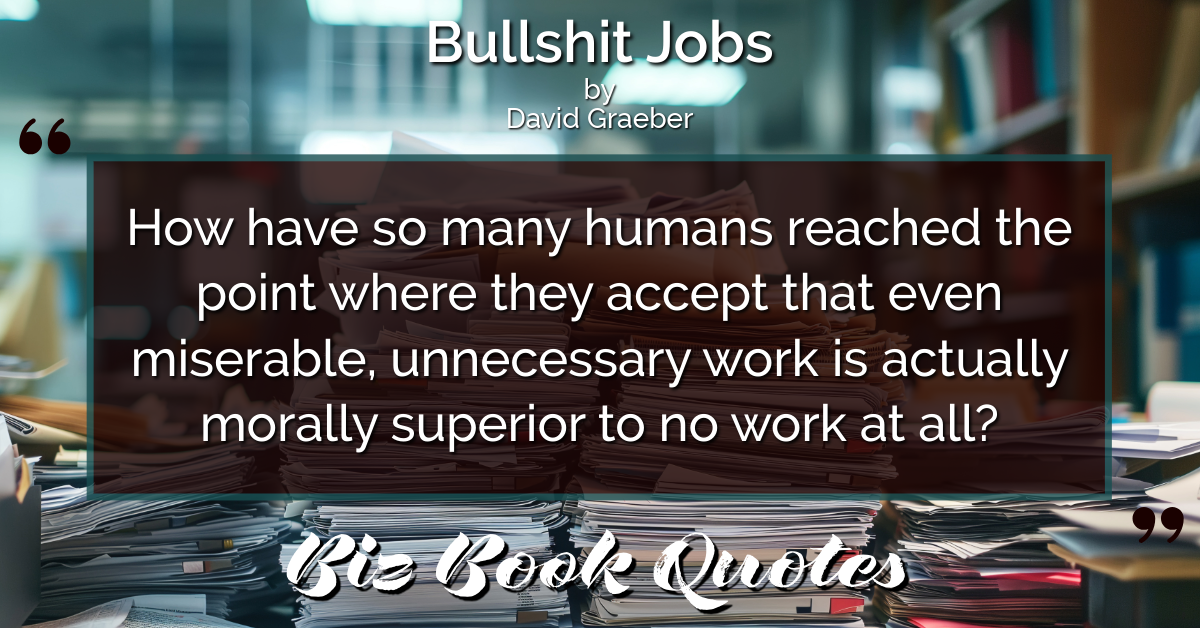
|
Bullshit Jobs:
How have so many humans reached the point where they accept that even miserable, unnecessary work is actually morally superior to no work at all?
|
220 |
|
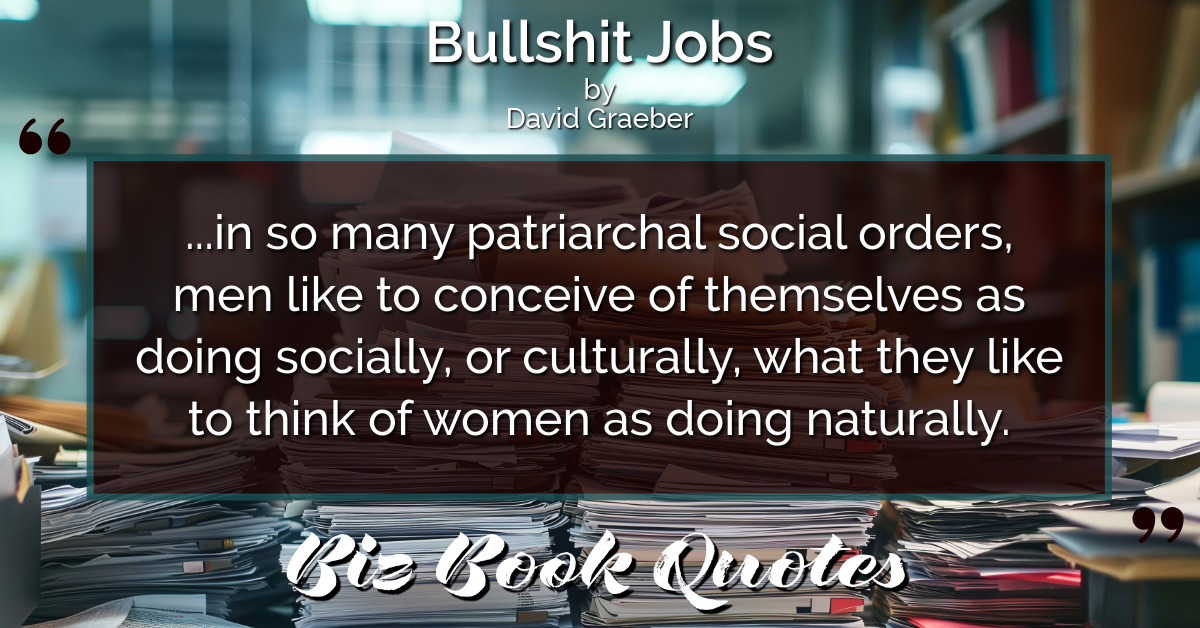
|
Bullshit Jobs:
…in so many patriarchal social orders, men like to conceive of themselves as doing socially, or culturally, what they like to think of women as doing naturally.
|
222 |
|

|
Bullshit Jobs:
…men see themselves as creating the world from their minds and brawn, and see that as the essence of ‘work,’ leaving to women most of the actual labor of tidying and maintaining things to make this illusion possible.
|
222 |
|

|
Bullshit Jobs:
Underlings have to constantly monitor what the boss is thinking: the boss doesn’t have to care.
|
237 |
|
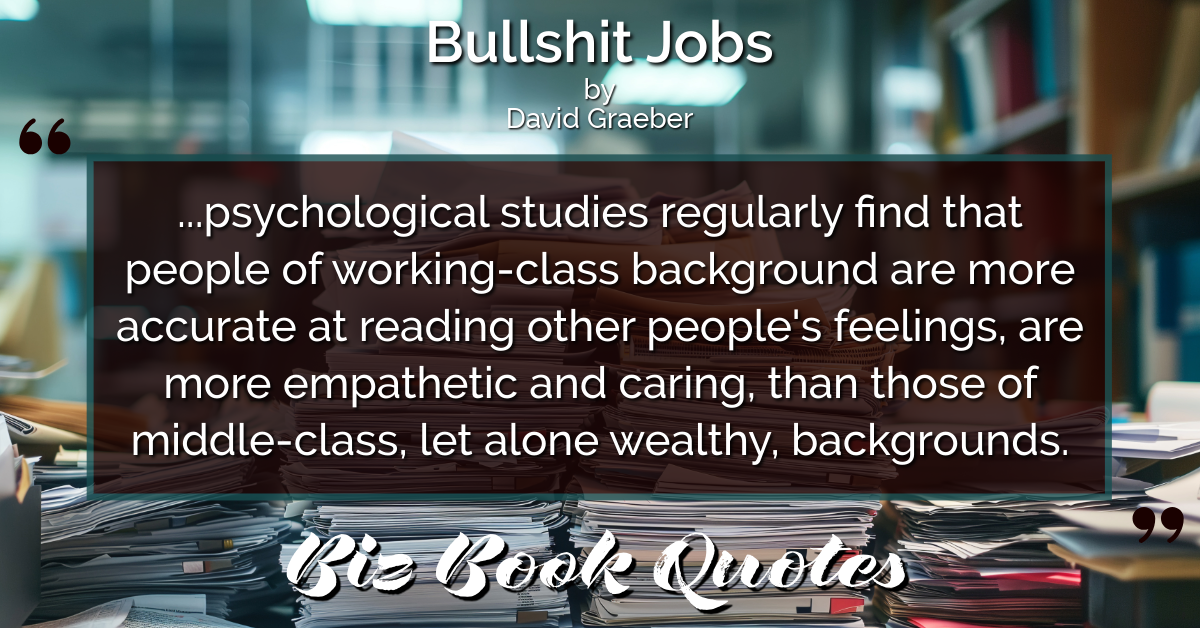
|
Bullshit Jobs:
…psychological studies regularly find that people of working-class background are more accurate at reading other people’s feelings, are more empathetic and caring, than those of middle-class, let alone wealthy, backgrounds.
|
237 |
|
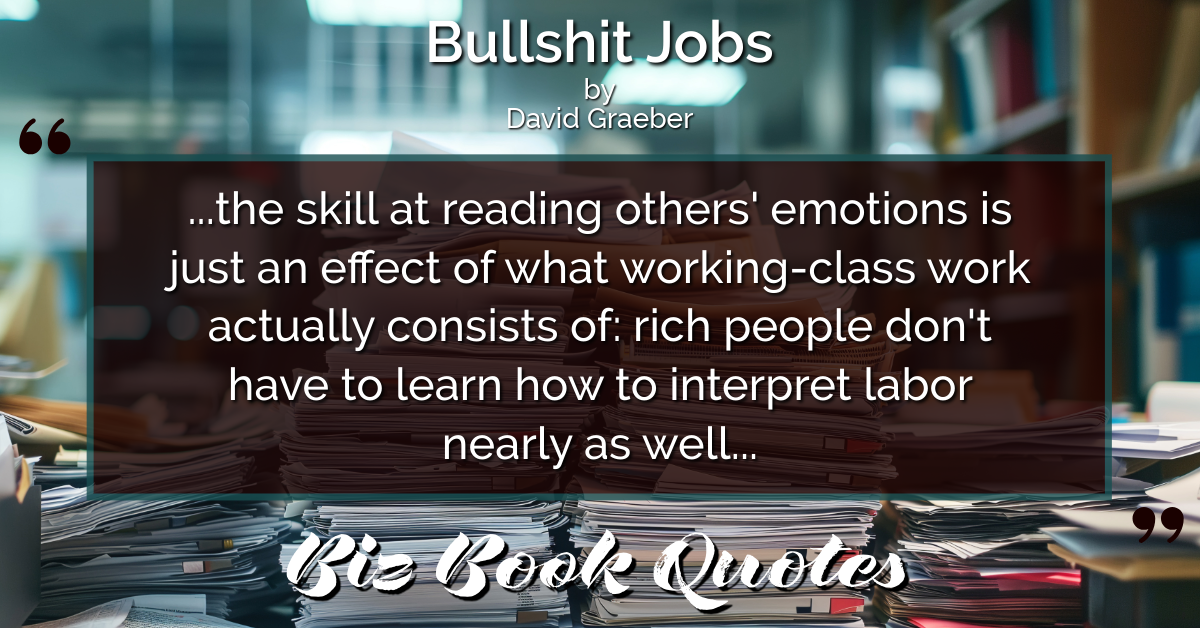
|
Bullshit Jobs:
…the skill at reading others’ emotions is just an effect of what working-class work actually consists of: rich people don’t have to learn how to interpret labor nearly as well…
|
237 |
|
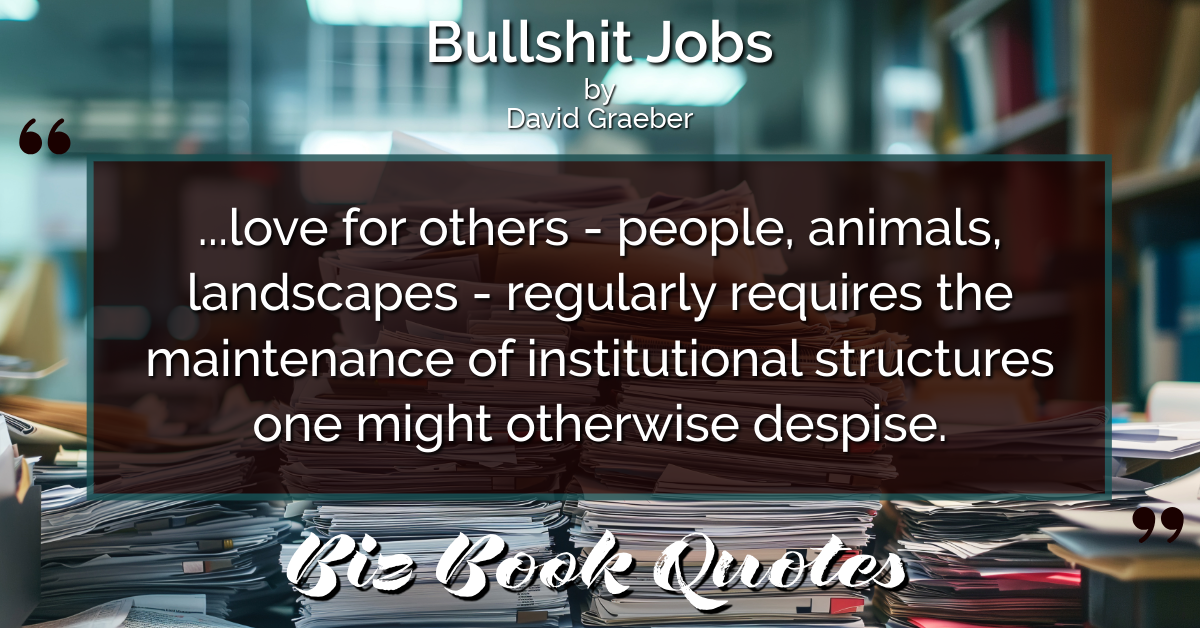
|
Bullshit Jobs:
…love for others – people, animals, landscapes – regularly requires the maintenance of institutional structures one might otherwise despise.
|
239 |











